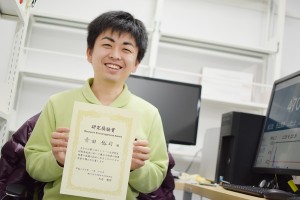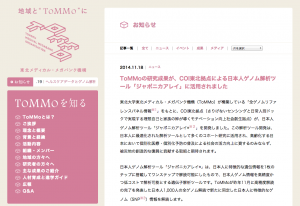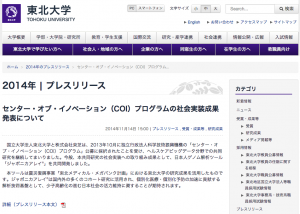The 56th In Silico Megabank Research Seminar will be held on Friday, February 13.
This Time, we will be welcoming Dr. Kosuke Teshima, Faculty of Sciences, Kyushu University as our lecturer, and he will be speaking on “Population Genetics and Coalescent Theory ”.
・Date/Time: February 13(Friday) 17:00‐18:30
・Venue: Small Conference Room 2(3rd Floor), Tohoku Medical Megabank Building
・Title: Population Genetics and Coalescent Theory
・Lecturer: Kosuke Teshima (Faculty of Sciences, Kyushu University)
*This lecture is transferable as a class in the medical research-related lecture course.
・Abstract: Various researchers especially having an interest in evolution are giving considerable attention to estimating the evolutionary change of organisms from genomic diversity data. Here, the definition of the evolutionary change is a change of organisms in a very long evolutionary timescale. Population genetics is thought to be effective as a theoretical analysis framework when estimating the evolutional change based on genomic diversity data. In this seminar, the perception of evolutionary process and basic analysis method in population genetics are first introduced. Then, the overview of coalescent theory, a frequently used theory in recent population genetic analysis, is provided. Coalescent theory is mainly used in the estimation of evolution parameters in association of the recent development of Bayesian method using calculators. In addition, as examples of studies using coalescent theory, two cases are introduced: a study examining the coincidence probabilities of Y-chromosome haplotype in forensic medicine and another study examining the evolutionary process of overlapping gene using coalescent theory.
・Organizer: Yosuke Kawai, Masao Nagasaki



